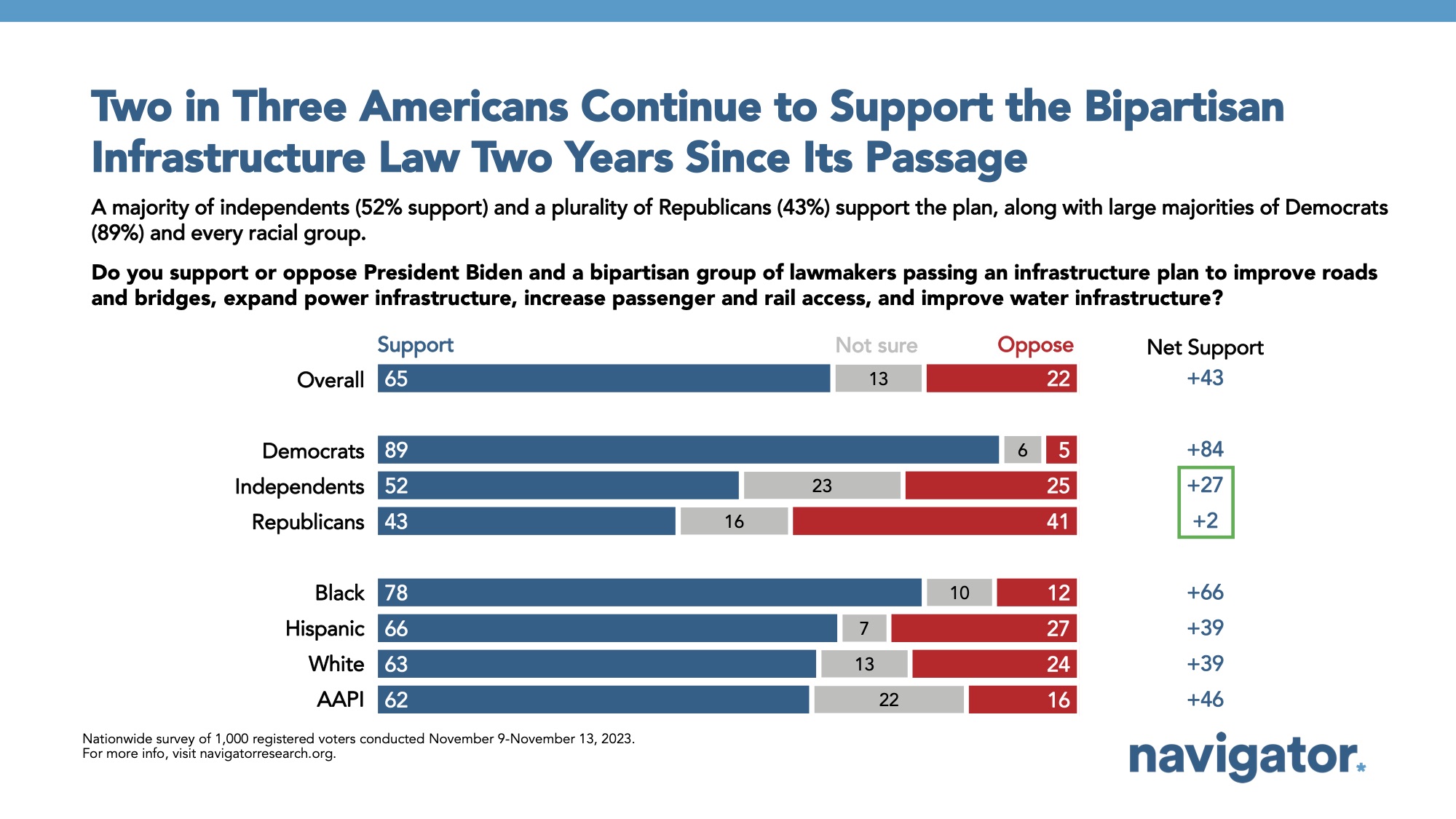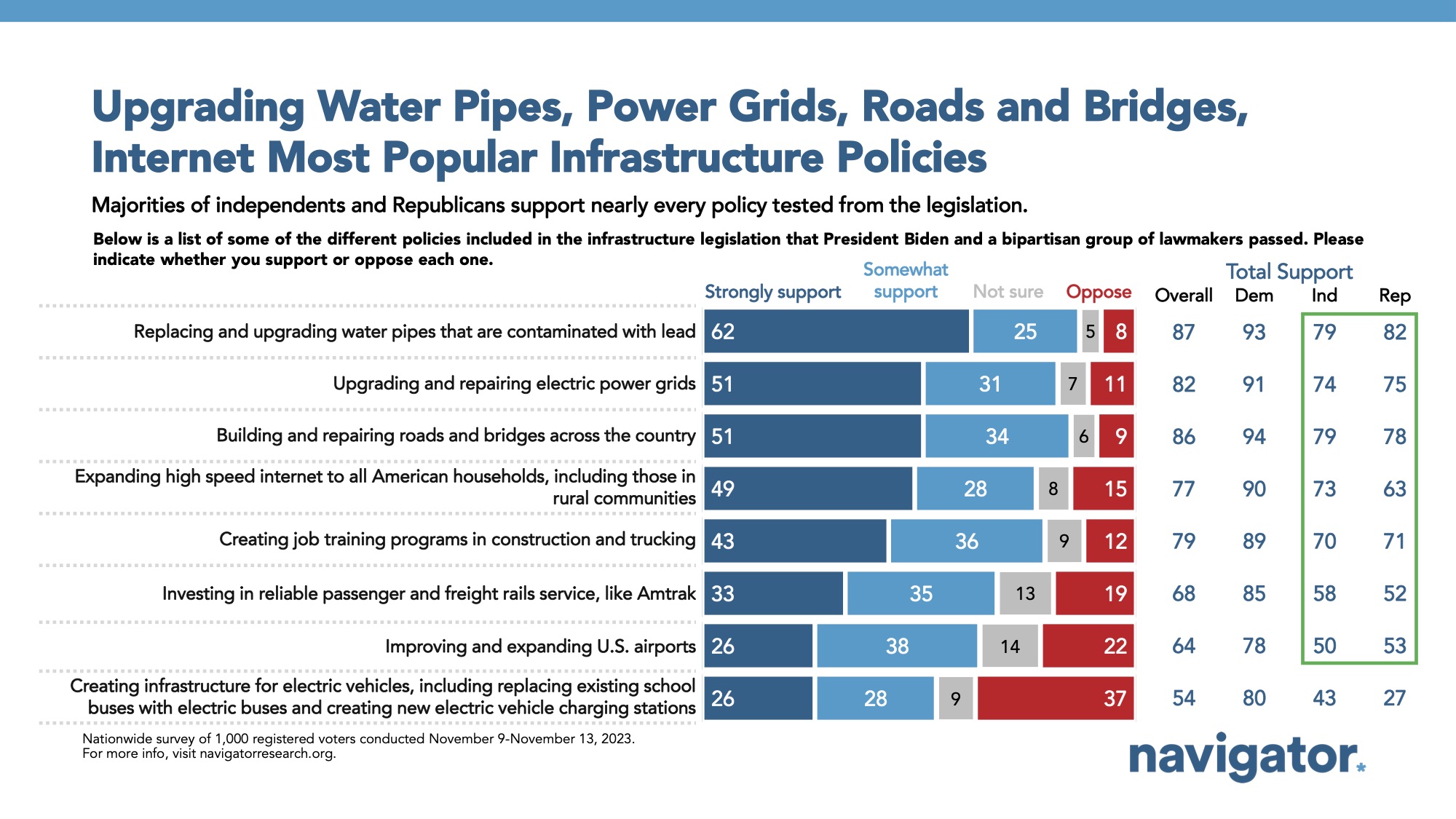Poll: Bipartisan Infrastructure Bill
This Navigator Research report contains polling data tracking public opinion of the Bipartisan Infrastructure Law two years after President Biden signed it into law, including overall support for the legislation and how Americans evaluate each of the individual parts of the law.
Two in three Americans continue to support the Bipartisan Infrastructure Law
By a 43-point margin, Americans continue to support the Bipartisan Infrastructure legislation that President Biden signed into law two years ago today. When asked about a new infrastructure plan that would “improve roads and bridges, expand power infrastructure, increase passenger and rail access, and improve water infrastructure,” 65 percent of Americans support this legislation with only 22 percent opposed. The legislation earns strong support across partisanship, including nine in ten Democrats (net +84; 89 percent support – 5 percent oppose), a majority of independents (net +27; 52 percent support – 27 percent oppose), and two in five Republicans (net +2; 43 percent support – 41 percent oppose).
- Despite a souring national environment over the last two years, this is consistent with Navigator’s November 2021 survey conducted just after Biden signed the legislation into law (net +40; 65 percent support – 25 percent oppose). Support is particularly high among Black Americans (78 percent), those living in households with a union member (73 percent), and those who are over the age of 65 (72 percent).
Most of the investments made by this law have even greater support than topline support for the law itself.
The components of the Bipartisan Infrastructure Law that earn the strongest support include:
- Replacing and upgrading water pipes that are contaminated with lead (net +79; 87 percent support – 8 percent oppose, including support from 79 percent of independents and 82 percent of Republicans);
- Building and repairing roads and bridges across the country (net +77; 86 percent support – 9 percent oppose, including support from 79 percent of independents and 78 percent of Republicans);
- Upgrading and repairing electric power grids (net +71; 82 percent support – 11 percent oppose, including support from 74 percent of independents and 75 percent of Republicans);
- Creating job training programs in construction and trucking (net +67; 79 percent support – 12 percent oppose, including support from 70 percent of independents and 71 percent of Republicans); and,
- Expanding high speed internet to all American households, including those in rural communities (net +62; 77 percent support – 15 percent oppose, including support from 73 percent of independents and 63 percent of Republicans).
About The Study
Global Strategy Group conducted public opinion surveys among a sample of 1,000 registered voters from November 9-November 13, 2023. 105 additional interviews were conducted among Hispanic voters. 72 additional interviews were conducted among Asian American and Pacific Islander voters. 100 additional interviews were conducted among African American voters. 103 additional interviews were conducted among independent voters. The survey was conducted online, recruiting respondents from an opt-in online panel vendor. Respondents were verified against a voter file and special care was taken to ensure the demographic composition of our sample matched that of the national registered voter population across a variety of demographic variables.






